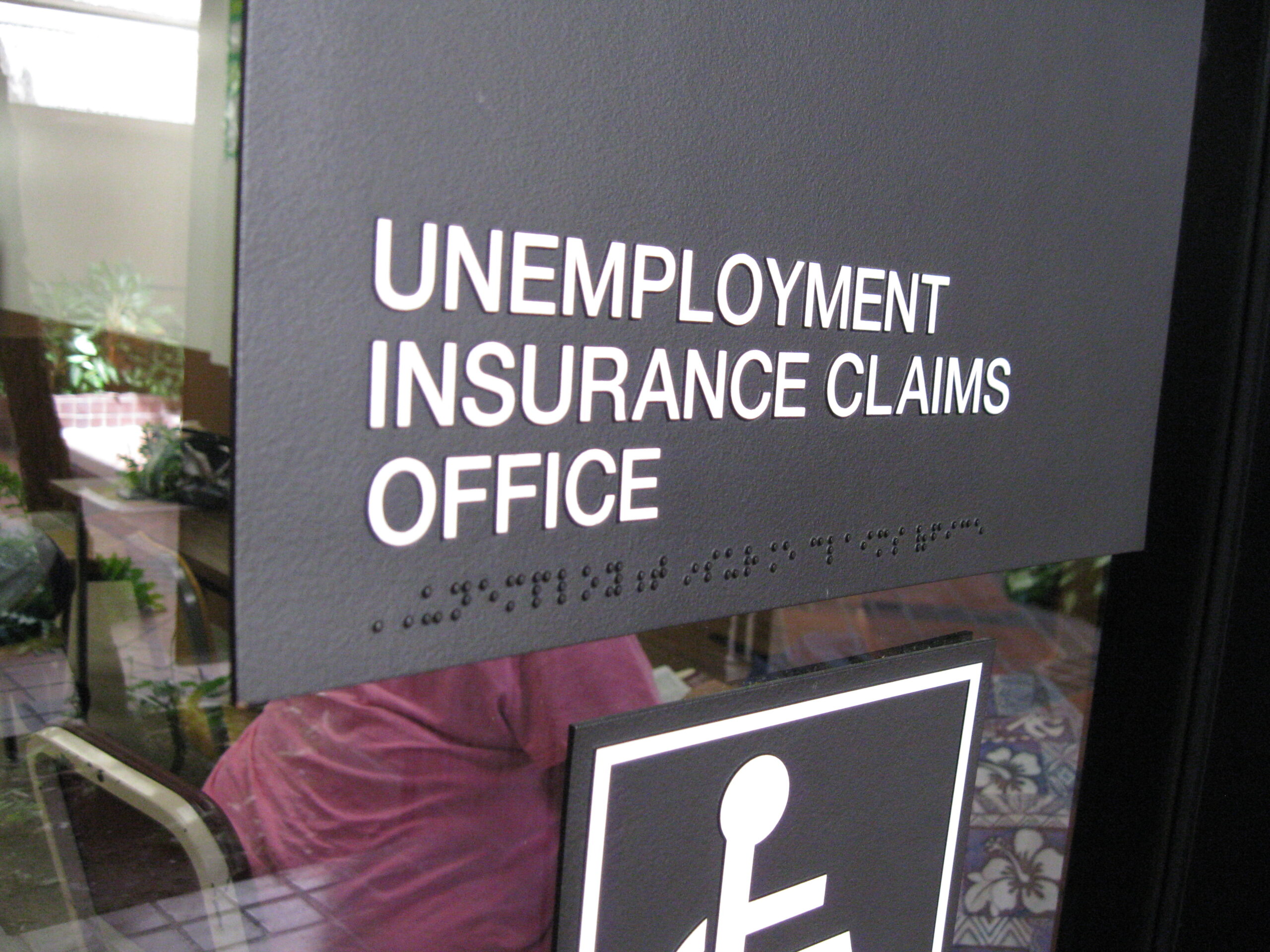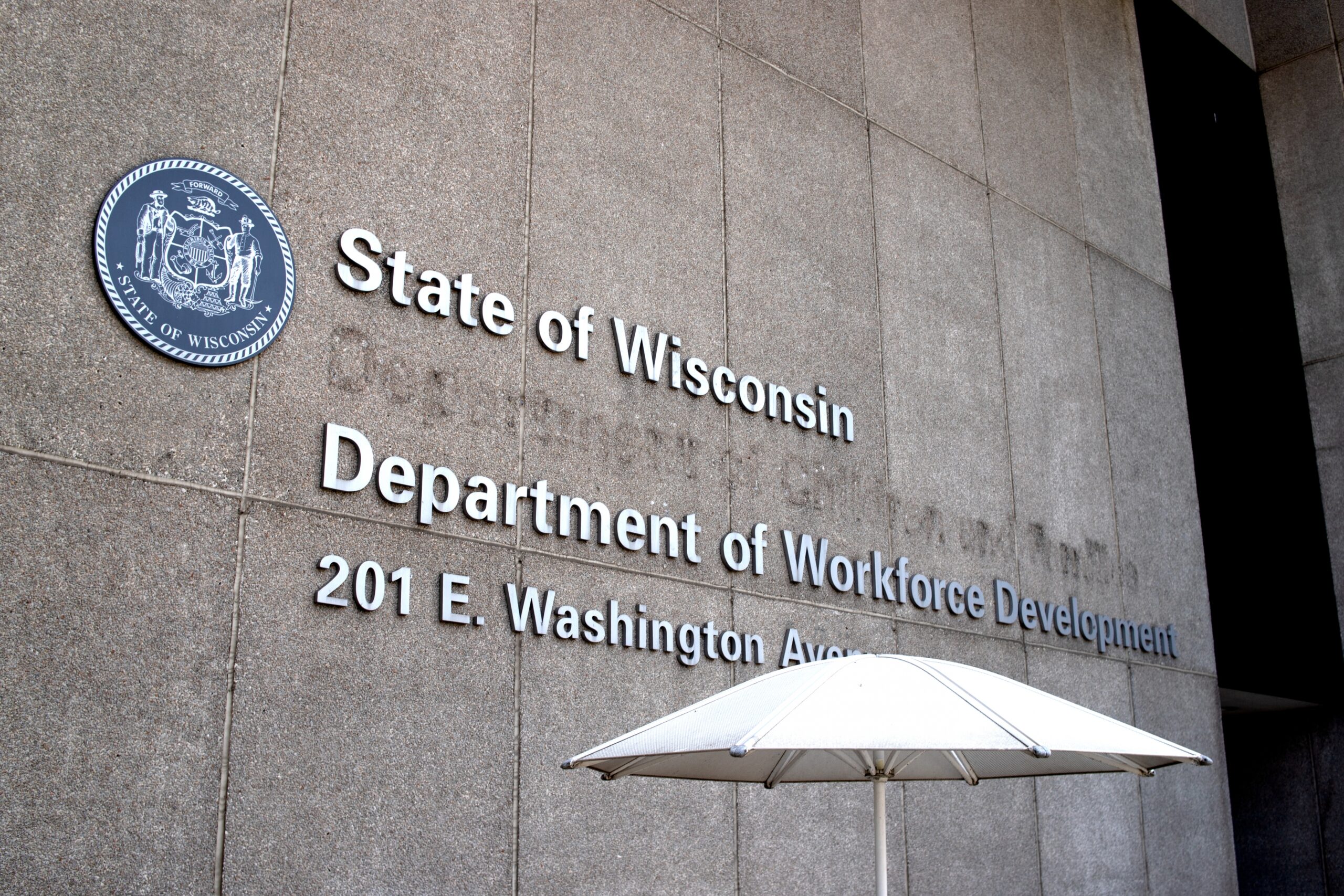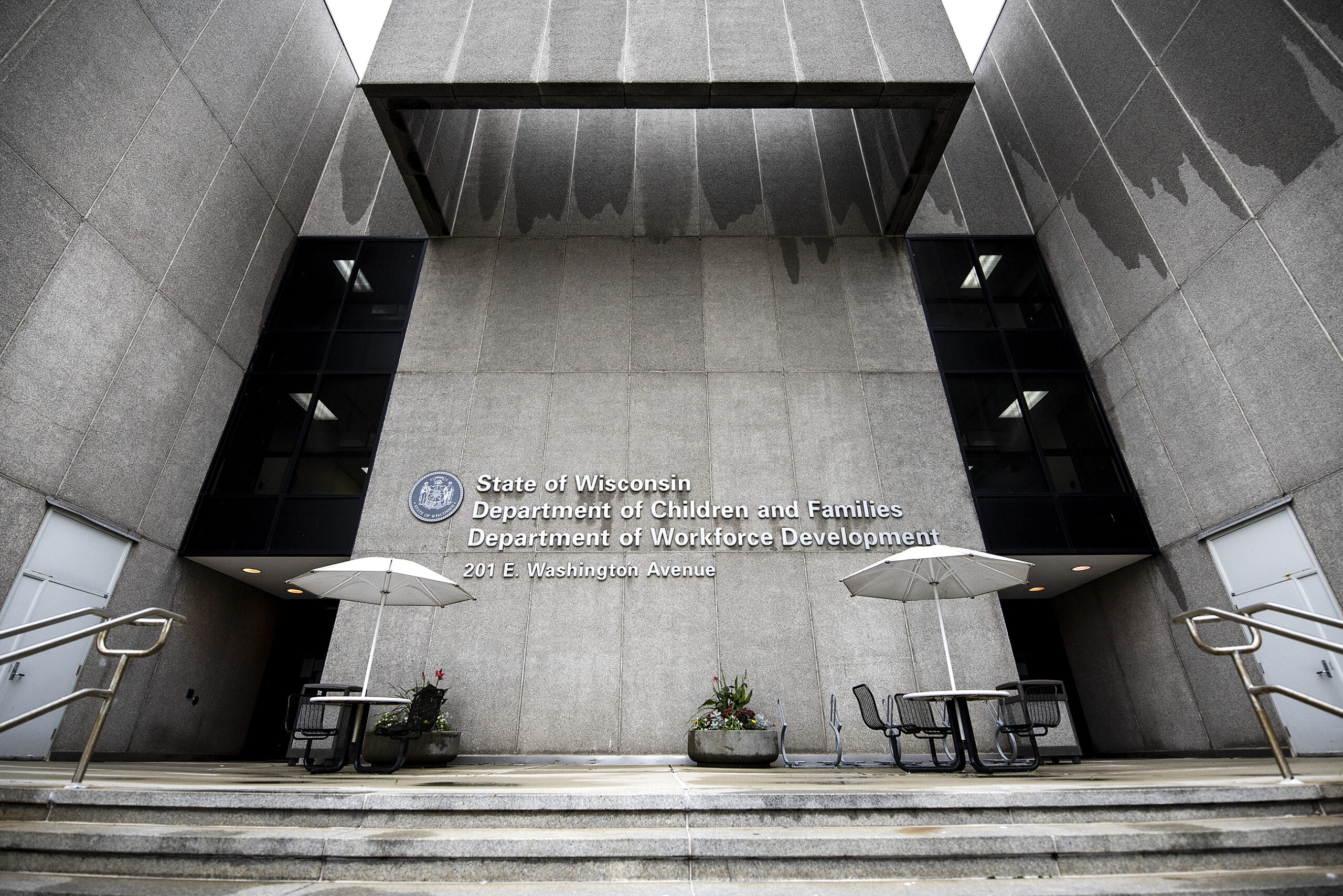Republican state lawmakers sharply criticized the Evers administration on Wednesday for hundreds of thousands of unpaid unemployment claims in Wisconsin, while Democrats argued GOP policies and spending choices are to blame for delays. The state has seen an unprecedented number of jobless claims brought on by fallout from the COVID-19 pandemic.
Of the 2.4 million weekly claims submitted to the state between March 15 and May 23, about 728,000 had yet to be paid as of Saturday, according to the state Department of Workforce Development.
During a public hearing with Senate lawmakers on Wednesday, department Secretary Caleb Frostman said DWD has been struggling to process a major surge in claims. DWD officials say department staff fielded about 3 million calls related to unemployment insurance during the week of May 16 alone.
News with a little more humanity
WPR’s “Wisconsin Today” newsletter keeps you connected to the state you love without feeling overwhelmed. No paywall. No agenda. No corporate filter.
“The biggest constraint we’ve faced is people,” Frostman said, noting the department has set a goal of bringing 1,300 more workers in to process claims and questions from benefit applicants.
Wisconsin’s unemployment rate was about 14 percent last month, the highest the state has seen since the Great Depression.
Frostman said DWD has already brought on 650 new workers since mid-March by accepting transfers from other state departments, hiring new employees and signing deals with private contractors. It has also extended call center hours.
Gov. Tony Evers has said the department is working as quickly as it can to process claims.
But GOP lawmakers on the state Senate’s Committee on Labor and Regulatory Reform said Wednesday the Evers administration hasn’t done enough to respond to Wisconsin residents’ needs. They pushed for extending call center hours further and doing more to shift state employees to DWD from other agencies.
“To me it seems there’s no urgency from the department to work the 24 hours a day to get these payments done,” said Sen. Steve Nass, R-Whitewater.
Nass said his office has been inundated with calls from frustrated people who have been waiting several weeks to receive their benefit checks.
“The stories are agonizing,” Nass said. “The financial and emotional pain these people go through is frustrating, it drives you to tears, quite frankly.”
Frostman said DWD officials have also been receiving calls to their personal phones and email addresses about delays.
“You hear weekends, weekdays, nights — phones are ringing off the hook,” he said. “Claimants are calling every phone number they can and it’s a really challenging situation.”
Workers attempting to claim Pandemic Unemployment Assistance (PUA) benefits represent a sizable segment of the state’s delayed payouts. The PUA program was created to offer unemployment benefits to individuals who aren’t eligible for traditional unemployment benefit programs, including self-employed workers and private contractors. According to DWD, it had received about 88,000 PUA claims as of Saturday.
The department began receiving claims for the PUA program on April 21, but didn’t begin issuing payments until May 21.
In a prepared statement issued before the hearing on Wednesday morning, Frostman said the delay was because the department was working to set up and test the systems necessary to process claims and make payments for the new program.
“While understanding the potential impacts of a minor delay in deployment, we felt it prudent and responsible to prevent any widespread issues that could cause even greater delays and hardship,” he said.
While Republicans argue the Evers administration hasn’t done enough to support workers reeling from layoffs during the COVID-19 pandemic, Democrats are blaming Republicans for delays in the state’s unemployment office.
They argue GOP lawmakers who have controlled the state Legislature since 2011 have not done enough to modernize the technology used at the office, especially following a 2014 report from DWD that called out flaws in the system.
“Nothing was done for six years to update that antiquated technology,” said Sen. Robert Wirch, D-Somers. “Republicans control how the money is spent and they chose not to put the money into upgrading the unemployment system.”
During Wednesday’s hearing, Frostman called the system “antiquated” and “inflexible,” saying it has hamstrung the department’s ability to roll out new programs and changes.
Democrats have also recently criticized Republicans for a record of passing laws that put more requirements on individuals seeking unemployment benefits. Frostman said the number of requirements in place in Wisconsin have contributed to the number of people who need to call DWD with questions related to their claims.
Some of those requirements, however, are on hold during the pandemic.
For example, Republicans enacted a one-week waiting period for benefits in 2011. The Legislature last month approved an Evers-backed measure to temporarily waive the waiting period. It will go back into effect in February.
A requirement that benefit recipients look for work in order to receive benefits is also on hold.
Other GOP measures related to unemployment, which supporters say crack down on fraud and incentivize work, have included laws that made it easier to end benefits for misconduct and increased the time and number of situations the unemployed are ineligible for benefits after declining a job offer. Republicans also passed a law requiring drug tests for applicants, but that law hasn’t taken effect yet.
DWD said earlier this month if unemployment claims keep coming in at the current rate, the state’s Unemployment Insurance Trust Fund could run out of money by October. If that happens, it will have to borrow money from the federal government to keep the program going, as it did during the Great Depression.
Wisconsin Public Radio, © Copyright 2026, Board of Regents of the University of Wisconsin System and Wisconsin Educational Communications Board.



